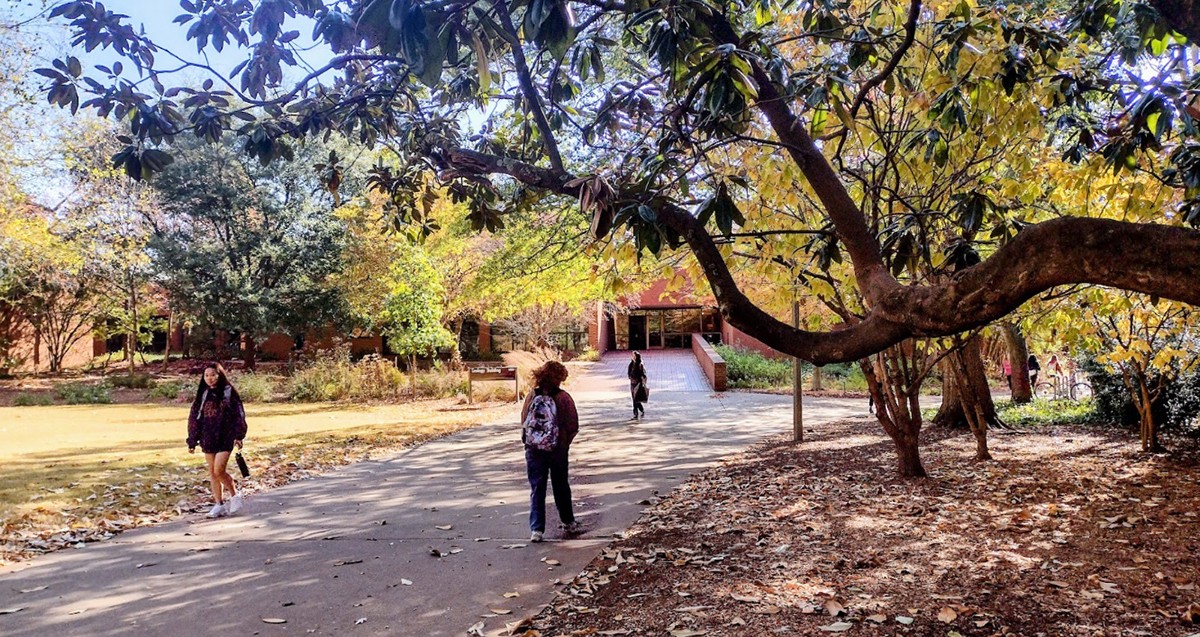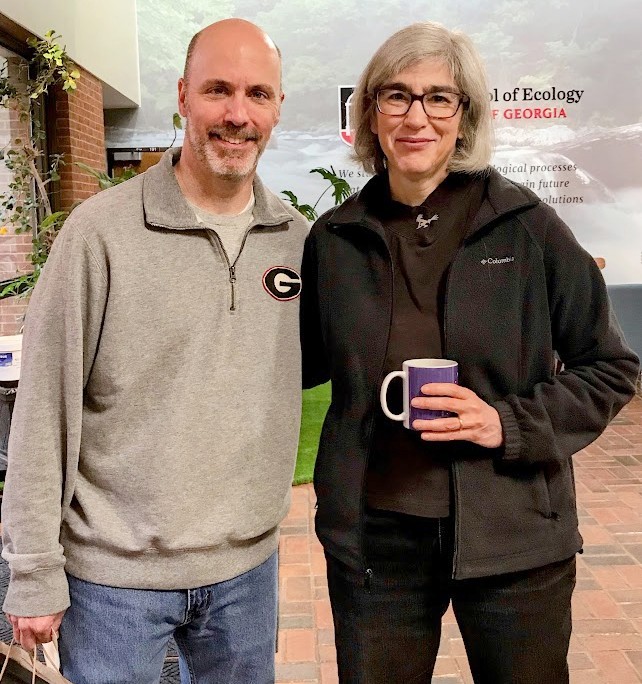November brings us to the home stretch of the fall semester, and is a time of reflection and change. Exams and term papers are ramping up, the weather is taking a sharp turn toward colder temperatures, and many of us are looking forward to holiday festivities, graduation and winter break.
During November, the Odum School was excited to welcome new faculty and staff, including development coordinator Melissa Lee, financial director Ashley Weed and assistant research scientist Charles van Rees. Importantly, in November, UGA launched an open search for the next Dean of the Odum School of Ecology – representing the first opportunity in 15 years to recruit new leadership for the school. On Nov. 1, Ecology members were also sad to say good-bye to IT director Brian Perkins, who has been a treasured member of the Odum School Community for nearly 15 years. Brian is taking a position in UGA’s Complex Carbohydrate Research Center, and we look forward to his future visits to Ecology.
The Odum School’s Center for the Ecology of Infectious Diseases sponsored several important events this past month. From Oct. 17-19, CEID and the Global Infectious Disease Intelligence Consortium (GIDIC) hosted a symposium focused on Japanese Encephalitis Virus as an emerging threat to livestock. This hybrid event was attended by over 150 registrants from eight different countries and included representatives from universities, industry, NGOs and government agencies.
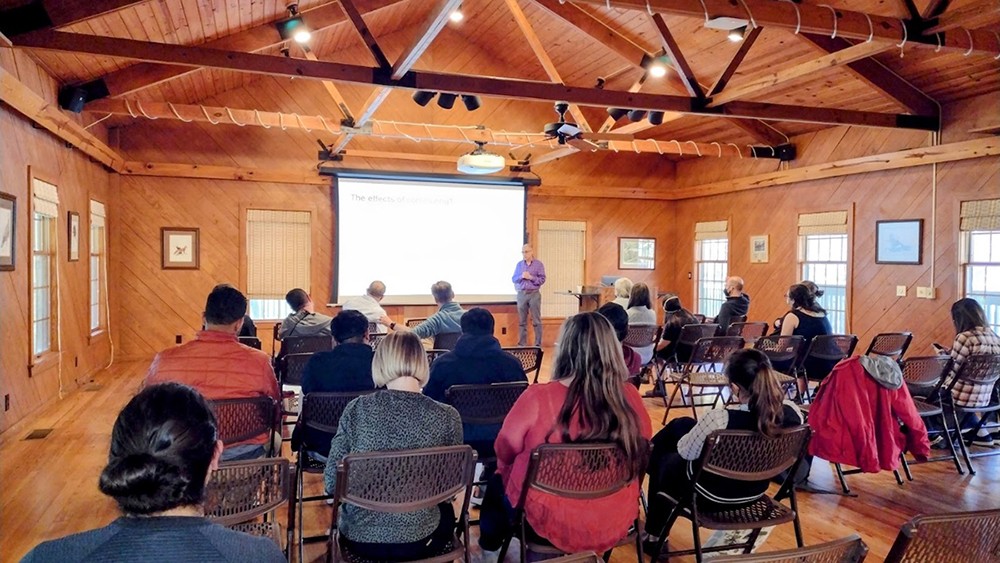
On Oct. 28, CEID and the affiliated IDEAS graduate program held their annual retreat, featuring talks, poster presentations and a keynote lecture by Regents’ Professor and Associate Dean for Academic Affairs Pej Rohani. Against this backdrop, CEID director John Drake and search committee members led a search for two tenure-track faculty members to join the Odum School of Ecology and CEID, with interviews of finalists taking place in November and December. As part of this cluster hire focused on the dynamics of infectious diseases, Ecology is partnering with three other colleges on campus to recruit eight new faculty colleagues in total.
Those who are following the post-election November news coverage have likely noted that the 27th United Nations Climate Change Conference (COP27) took place this past week (Nov. 6-18) in Sharm el-Sheikh, Egypt. As global carbon emissions and temperatures continue to rise, the Earth’s climate is expected to surpass previous targets aimed at avoiding the most catastrophic outcomes. And 2022 has certainly been a year of extreme weather events around the world, from Florida’s Hurricane Ian, to the summer wildfires and heat waves in Europe, to the severe monsoon flooding in Pakistan. Future climate change projections increase the urgency of research focused on forecasting the consequences of rising temperatures for global ecosystems and the people that rely on them. A growing body of work by researchers at the Odum School is bringing new data to bear on the ecological impacts of climate change – from studies of how alpine plants are impacted by warmer, drier conditions, to analyses of climate-driven changes in diseases that affect humans and wildlife. Other work by UGA ecologists is forecasting the forests of the future and tracking coral reef extinctions in warmer, more acidic oceans. This work by Odum school faculty, staff and students has never been more important than it is today, and continues to inform projections and responses to the world’s intensifying climate concerns.
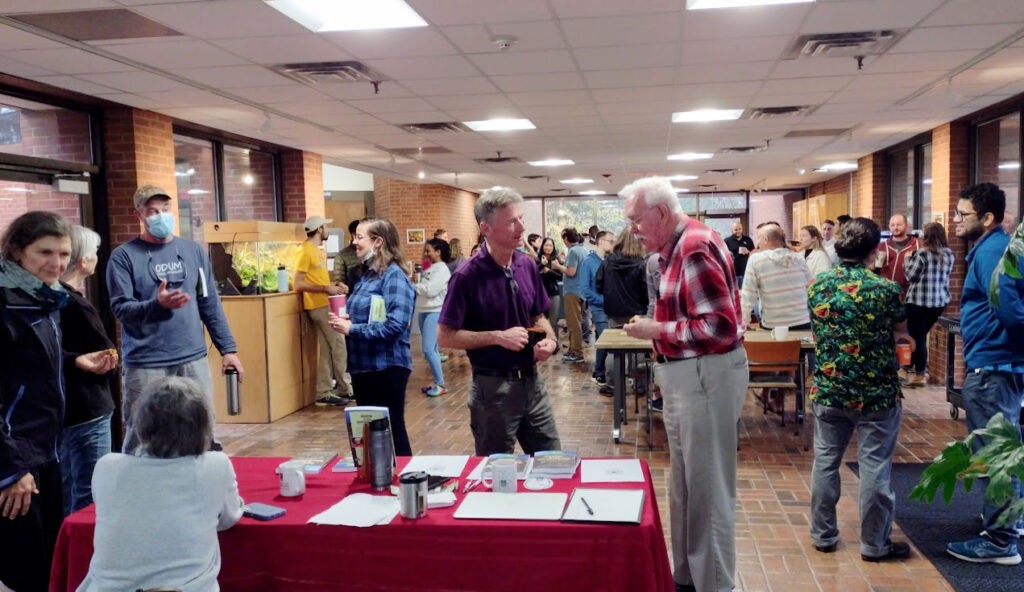
Ecology’s 22 emeritus faculty are an active and productive group. From writing and publishing books on herpetofauna, soil ecosystem ecology, thermodynamics, and marine mammals, to traveling to Brazil, Hawaii and Mexico for field work and conferences, it is challenging to keep up with their pursuits and accomplishments! On Nov. 11, Dave Coleman joined us for a book-signing event in the Ecology main lobby during coffee hour. We were happy to provide updates from a number of emeritus faculty in the October 2022 EcoVoice Magazine (pp. 29-31), and I look forward to working with them on major initiatives in Ecology in the coming year.
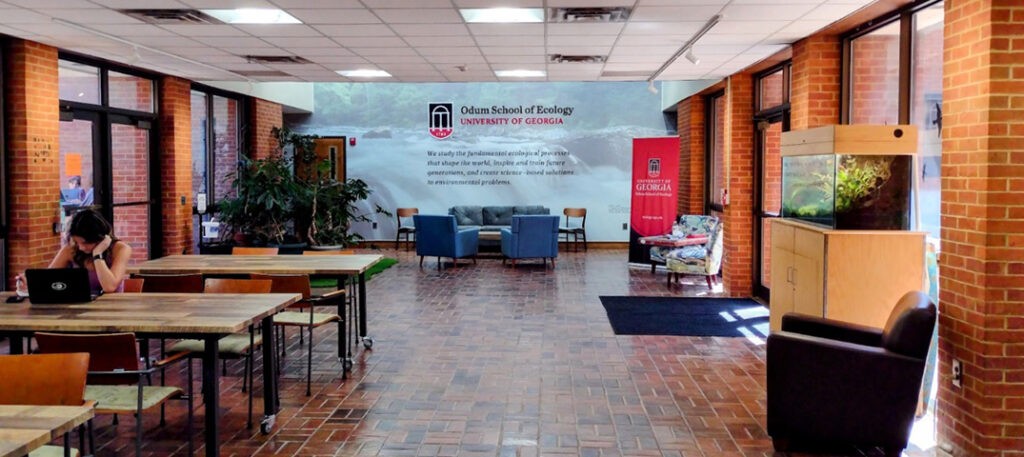
As a final note, during this season of gratitude, I am thankful for the extraordinary faculty, staff and students that make the Odum School of Ecology a dynamic and exciting place. Every day that I walk into the Ecology Building, I see students studying and collaborating in the lobby and courtyard. I see instructors connecting with students through case studies and active learning. I see research labs pushing the frontiers of ecological knowledge. I see thriving degree programs with some of the best ecology students in the country. I see staff that are dedicated to supporting our mission of discovery and collaboration. I see a school and research centers with outstanding academic reputations. And I see people developing innovative science that advances the boundaries of ecological knowledge.
The ideas, optimism and courage of members of our school inspire me every day. I hope this holiday season brings everyone the space to rest and rejuvenate with friends and loved ones. Thank you to our Odum School family, alumni and friends for making this a fantastic place to discover, work and learn.

